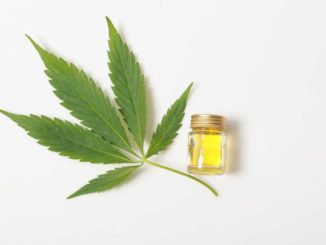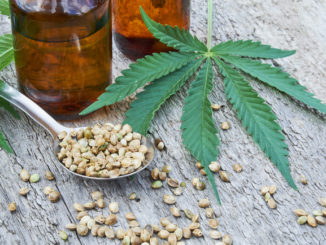
You know, the media can be a wonderful thing, especially when it is used to help people. Some of the ways that it helps the general population is through reporting on world affairs, informing us about the pros and cons of vaccinating our children, and even keeping us updated on weather and traffic conditions. Yet as a powerful medium for disseminating information, the media is also very rarely unbiased because the “powers that be” who control the various media outlets are NOT unbiased and, therefore, mandate the spin placed on the information that it generates.
Spin is the direction any given subject may take, depending on how the story is told. CNN and Fox News may tell the same story, but the feeling a viewer or listener takes away from that story will probably depend on how the story was told. Was the subject represented in a negative light or a positive one? It all depends on how presenters want the information to be interpreted.
I feel this is true with one particular subject that we hear about nearly on a daily basis. Yep, that would be Cannabis. I don’t even know what to call it anymore other than that because the name seems to change so frequently that it is hard to keep up with – pot, weed, marijuana, dro. Who knows anymore? What surely everyone does know by now is that it is a subject that is as hotly contested now as it has ever been.
There is one camp that tends to be more conservative which touts it is a gateway drug meaning that it is believed that it often leads to other, more dangerous drugs. Additionally, research has shown that it does effect brain function and can impair memory, as well as create other such issues. There has been much research to support these points of view, but again, you have to consider how much spin may be involved.
This is also a consideration when you hear arguments posed by the other side; that is, those who support the legalization of Cannabis. They, too, have had researchers who espouse the harmlessness of Cannabis and the benefits of its use. The fact that it is a natural herb that requires little processing before use is one thing that proponents use to substantiate their claim that it should be legalized. Of course, the same can be said for opium, but no one is pushing to legalize that.
The legalization of medical grade Cannabis opens an entirely different Pandora’s Box which is just as fervently debated. Although there was a 2014 referendum to legalize medical marijuana in Florida, it failed to attain the 60 percent vote that was required to pass it into law.
This is a multi-pronged issue that creates tremendous division among most people. There are those who support its use for recreational purposes who feel that is it harmless. Then there are those who support its legalization for medical use. These proponents often feel it is a much better alternative to some other traditional medications because it can be used to ease the symptoms of illnesses such as glaucoma and cancer. Yet there are also those who are vehemently opposed to its use altogether and are just as convinced that there is no difference between it and many drugs that have more obvious effects. Each of these camps are just as ardent in their opinions as the others.
No matter how you feel about this particular dispute, the failure to legalize any type of Cannabis means that, even if you feel it is harmless, it is still illegal in the state of Florida. As such, if you still partake in its use, I would strongly advise you not to do so in your vehicle. Something as simple as an improper lane change can lead a police officer to pull you over. He can use the excuse that he smells marijuana to search your car and what he finds there is admissible as evidence in court.
What the cop thinks he may smell is viewed quite differently from what a canine cop can actually detect. There has been much controversy around the use of canine officers to sniff out drugs during a vehicle traffic stop. As a matter of fact, in 2013 there were two cases heard by the Florida Supreme Court regarding whether or not the use of K-9 units violated the Fourth Amendment rights of those who were subjected to canine searches.
Although these cases were closely scrutinized by attorneys and the general population alike, the outcome left the issue pretty much as it started. In one case, the Justices determined that it was legal to allow drug dogs to sniff out drugs during a vehicle traffic stop. I’m not sure if I agree with this decision because it was based upon a drug dog reacting to a scent on the door handle of a car during a traffic stop. The Justices considered this to be probable cause, but at the end of the day, a dog is still a dog. Maybe the driver ate a juicy hamburger right before opening his car door. No matter how well-trained a dog is, they are scavengers by nature and you can’t train instinct out of them.
The second case pertained to whether or not these drug-sniffing wonder dogs could be used to search houses. It was determined in this case that it is illegal to allow police dogs to seek out drugs in someone’s home without a search warrant.
What does all of this mean to you? I do NOT advocate breaking any laws whatsoever. If, however, you choose to partake in the practice of smoking any illegal substances, do it at home and not in your car. You don’t want Fido to confirm the cop’s suspicions by finding a “roach”, paraphernalia such as a pipe, or even trace amounts of any illegal substances. Now, if a cop shows up at your home with a police dog and wants to have the dog seek out drugs, make sure that he has a warrant to do so.
Even if Amendment 2 had passed, many law enforcement agencies are prepared to address the issue of “driving while high” just as they do driving under the influence. There is a distinction between DWI and DUI. Driving while intoxicated implies that you are operating a vehicle after consuming alcohol; driving under the influence entails being effected by ANY substance, even if it is a prescribed medication. This would apply to marijuana, should if ever be legalized even for medicinal use.
Make no mistake that the penalties for getting a traffic ticket for either DWI or DUI carry severe consequences. If you are found guilty of any charges that pertain to illegal drugs, you can lose your driving privileges for six months up to two years. This is not a charge that you want to take lightly so if you are pulled over and found to be in possession of Cannabis or any other illicit substance, give our office a call at 954-967-9888 for a free consultation. We have years of experience representing clients who get all types of traffic tickets.
Proudly WWW.PONIREVO.COM



